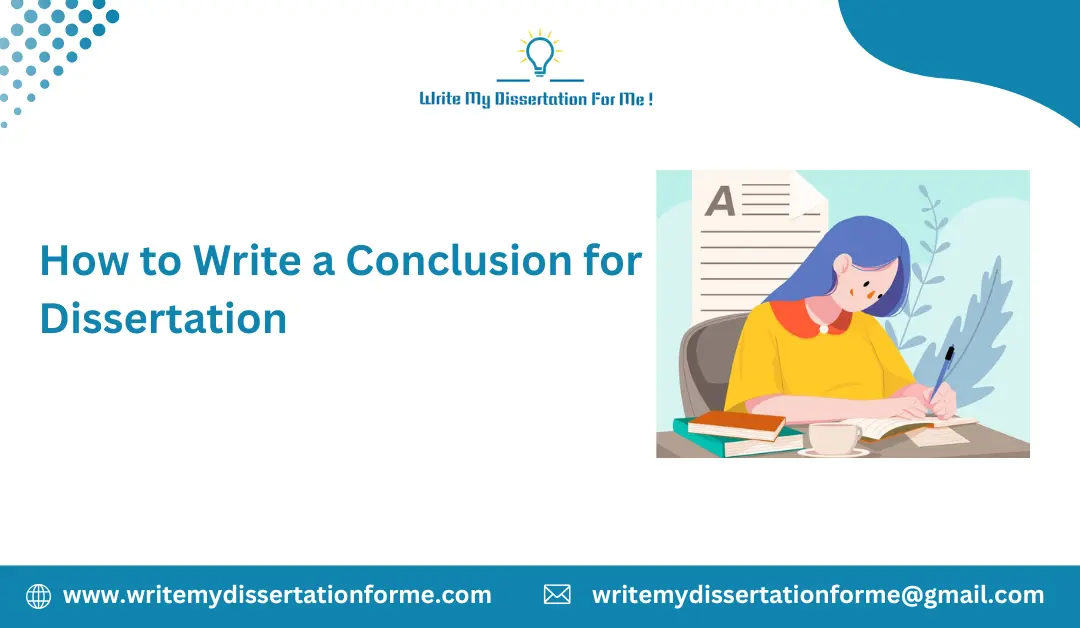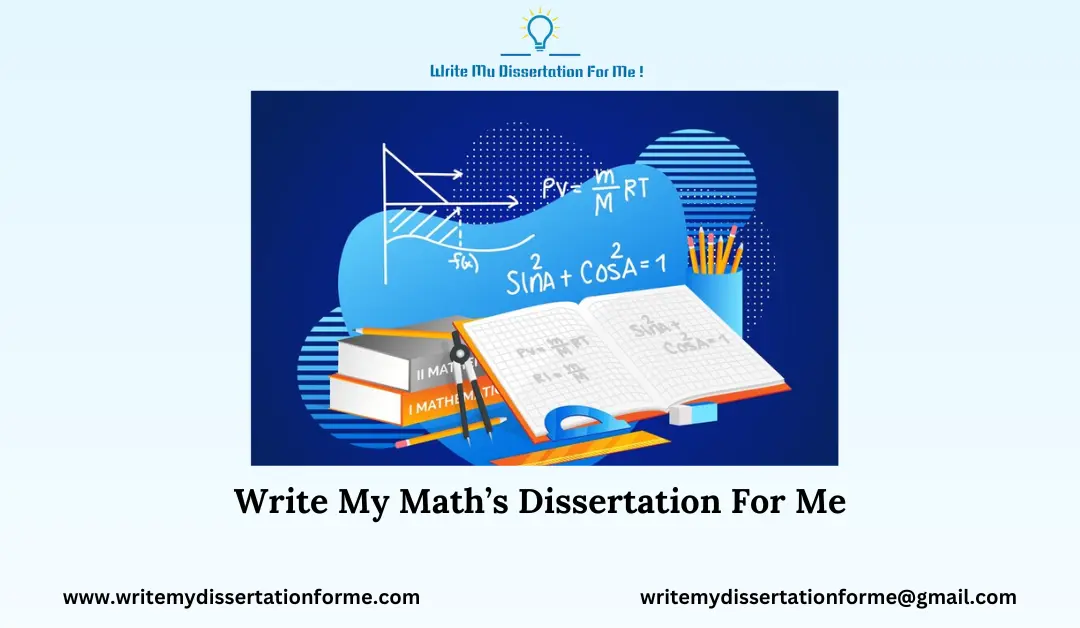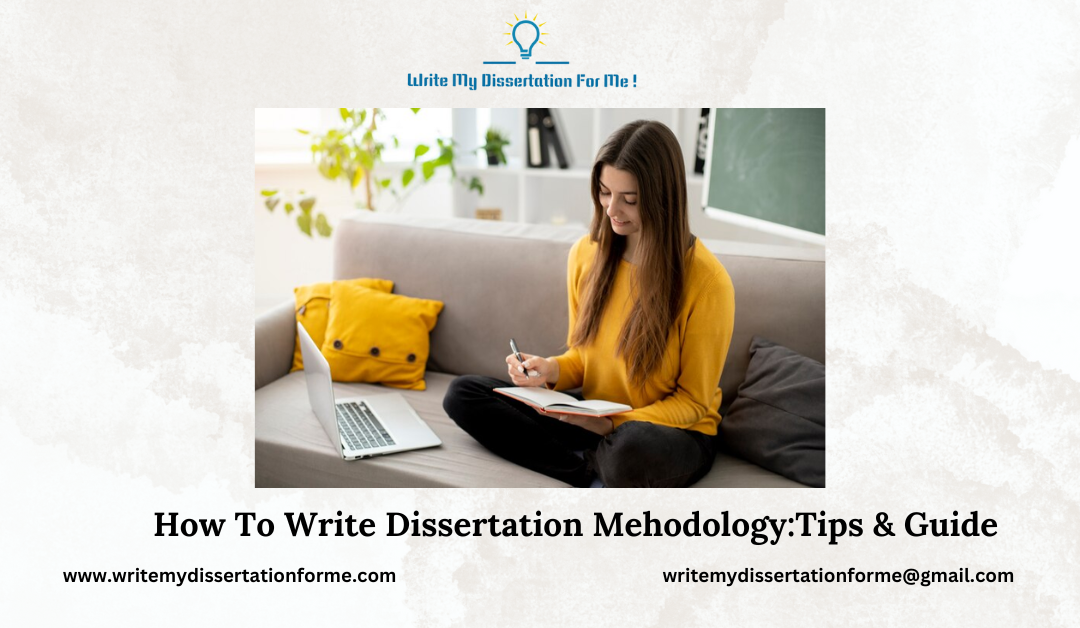How to Write a Conclusion for Dissertation
July 22 2025 | 05 min read

WriteMyDissertationForMe.com's Expert Guide
Dissertation writing is a drawn-out and challenging process. The dissertation conclusion is the last chapter you reach after many hours of writing, analysis, and research. Although it may appear to be a shorter portion than the rest, your conclusion is very important because it is your chance to explain the significance of your research.
We'll go over everything you need to know about writing an engaging dissertation conclusion in this guide. These suggestions will help you create a conclusion that has an impact, regardless of whether you're working toward an undergraduate, graduate, or doctoral degree.
What Is the Purpose of a Dissertation Conclusion?
A dissertation's conclusion is the last declaration you make in your academic career, not merely a synopsis of your results. It summarises your story, connects the major points, considers the ramifications of your research, and suggests areas for more investigation.
A strong conclusion ought to:
- Concisely summarise the main conclusions.
- Reflect on the research question or hypothesis
- Emphasise the field's contribution.
- Talk about the limitations and make recommendations for more research.
- Make a lasting impression on the reader.
Many students undervalue this chapter; however, keep in mind that your dissertation's conclusion can be the one your examiner remembers the most.
Key Elements to Include in a Dissertation Conclusion:
If you're struggling with writing a dissertation conclusion, here are the essential elements to include:
1. Restate the purpose and goals of the study: Review your research's purpose and goals at the beginning of your conclusion. Have you had a chance to meet them? In what ways does your research contribute to the problem you set out to answer in the first place?
For instance: "The purpose of this study was to investigate the connection between university students' academic achievement and digital learning resources. The results validate that.
2. Summarise the Key Findings: Don’t repeat everything from the discussion chapter. Instead, highlight the most important findings and explain how they contribute to answering your research questions.
3. Talk About the Consequences: Consider how your study relates to the larger area of academia. What fresh perspectives does it offer? What potential effects might it have on upcoming studies, regulations, or procedures?
4. Deal with the Restrictions: Credibility is increased by being open about the limitations of your research. Were there restrictions on data access, sample size, or time?
For instance: "Although the results are promising, the study was limited by a small sample size, which may affect generalizability."
5. Make recommendations for future research directions: Make recommendations for how other scholars can expand on your findings. This demonstrates critical thinking and an understanding of the remaining gaps.
6. Conclude with a Powerful Remark: Finish with a concluding thought or realisation that highlights the significance of your research. Your reader will remember this for a long time.
How to Format the Conclusion of a Dissertation:
The conclusion of your dissertation should be coherently structured and written. This is a proposed structure:
- Overview Sentence: Give a brief overview of the conclusion's goal.
- Restate the objectives and goals: Refer back to the initial purpose of your research.
- Key Findings: Emphasise noteworthy outcomes and their implications.
- Implications: Make a connection between your results and the broader context.
- Limitations: Recognise any shortcomings or restrictions.
- Future Research: Suggest topics for additional investigation.
- Conclusion: Conclude with a noteworthy last observation.
Common Mistakes to Avoid in a Dissertation Conclusion:
Many students make the following mistakes when writing a dissertation conclusion:
- Reiterating the Discussion Chapter: Make sure your conclusion is succinct. Don't reiterate all of the points discussed in earlier chapters.
- Presenting New Data: Don't offer fresh information, hypotheses, or arguments. The ending is meant to finish things up, not to elaborate.
- Having Too Much Vagueness: Generalisations such as "this study was important" are shallow. Be precise about why and how your study matters.
- Ignoring the Research Question: Remain focused on your research question at all times. Have you responded to it? What did you find?
Example of a Dissertation Conclusion Paragraph:
Here’s an example of what a strong dissertation conclusion might look like:
The purpose of this study was to investigate the impact of distance learning on student engagement in UK higher education institutions. The study, which employed both qualitative and quantitative methodologies, found a strong correlation between enhanced learning outcomes and the use of technology tools.
These results demonstrate the changing nature of education and emphasise the importance of educational institutions effectively utilising digital platforms. Although only three colleges were included in the study, its findings serve as a basis for more extensive research.
The long-term impacts of digital schooling after the epidemic may be the subject of future studies. Ultimately, this dissertation contributes valuable insights to the ongoing debate about technology in the classroom.
Tips for Writing a Strong Dissertation Conclusion:
If you want your conclusion to stand out, follow these expert tips from our team at WriteMyDissertationForMe.com:
- Be Brief and Clear: Steer clear of jargon and extremely complicated sentences. It should be simple to read and comprehend your conclusion.
- Express Yourself: Speak with assurance while maintaining objectivity and intellectual rigor. Steer clear of being too casual or too sentimental.
- Make Use of the Proper Tense: The present tense can be used when describing the significance of the discoveries, while the past tense is usually used when summarising what was done.
- Complement Your Abstract: For consistency, ensure that your conclusion aligns with the ideas and tone of your abstract.
When to Get Expert Assistance:
You're not alone in experiencing feelings of uncertainty or overwhelm. To write a dissertation conclusion that meets academic requirements, many students seek assistance from professional academic services. Our skilled writers at WriteMyDissertationForMe.com provide specialised assistance to ensure a powerful final product.
A professional eye may make all the difference in creating a conclusion that is both academically solid and relevant, regardless of whether you require editing, criticism, or full writing support.
Conclusion:
Although it may be the last chapter, a dissertation's conclusion is by no means an afterthought. It summarises your entire research process, highlights your discoveries, and demonstrates your capacity for critical thinking. In addition to improving your dissertation, a well-written conclusion makes a lasting impression on your reviewers.
Your conclusion will bring everything together if you restate your goals, provide a summary of your findings, and offer some insightful thoughts. Additionally, keep in mind that professional dissertation assistance is only a click away at WriteMyDissertationForMe.com if you ever need it.
Make your study matter, finish strong, and let your conclusion speak for itself.
If you loved reading this, please share this,
also read

Write My Math's Dissertation For Me
The completion of a dissertation is one of the major academic milestones that often indicate a student's progress toward a de...

What to Look for in an Accounts Dissertation Writing Service
Writing an accounting dissertation might be a challenging task. With sophisticated theories, in-depth financial analysis, and...

Dissertation Methodology An Introduction:Tips & Guide
Starting a dissertation is a huge undertaking, similar to scaling a mountain in academia. The methodology section, a crucial ...